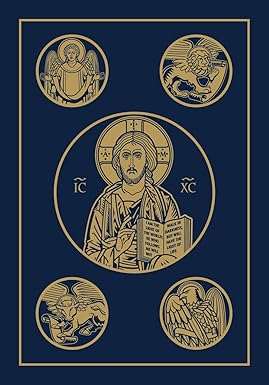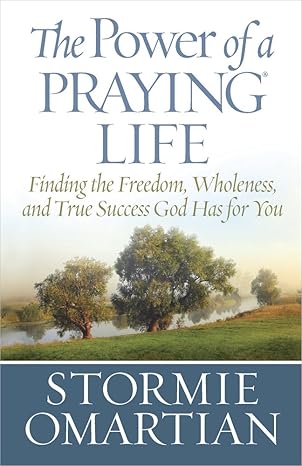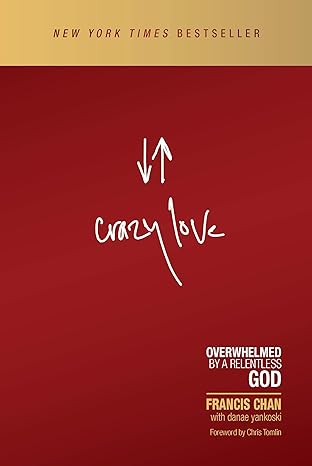
The Hiding Place Book Review: A Testament of Faith in the Darkest Times
Sunday, January 1, 2006In an era when courage often comes with a hashtag, The Hiding Place reminds us what true bravery actually costs. I'll be honest—I picked up Corrie ten Boom's memoir thinking I knew what to expect: another inspiring World War II story. What I got instead was something that shook me to my core. This isn't just a book about a Dutch family hiding Jews during the Nazi occupation. It's a raw, honest look at what happens when your faith stops being theoretical and starts demanding everything you have.
Corrie's story begins in an ordinary watchmaker's shop and ends in places most of us can barely imagine. Along the way, she discovers truths about forgiveness, suffering, and God's presence that most of us spend our whole lives trying to understand. If you've ever wondered whether faith can survive the worst humanity has to offer, The Hiding Place doesn't just answer that question—it proves it.
About the Book
Here's the thing about Corrie ten Boom: she was nobody special. At least, that's how she'd probably describe herself. A fifty-something unmarried woman who fixed watches with her father and sister in Haarlem, Holland. She wasn't a theologian or a missionary. She was just... ordinary.
But when the Nazis occupied Holland, ordinary wasn't an option anymore. The ten Boom family made a choice that would change everything: their home became a hiding place for Jews fleeing persecution. They built a secret room behind Corrie's bedroom wall—barely big enough to hold six people—and became part of an underground network that saved dozens of lives.
The Hiding Place walks us through Corrie's journey from that cozy watchmaker's home to the hell of Ravensbrück concentration camp. She and her sister Betsie experienced horrors that would break most people. Yet somehow, in the middle of unspeakable darkness, they found—or maybe were found by—a faith that burned brighter than ever.
What strikes me most about this book is Corrie's refusal to give us a sanitized version of events. She doesn't pretty up the suffering or skip over the parts where she doubted and struggled. Instead, she shows us something more valuable: how God meets us in the mess, not after we've cleaned it up. Her story explores what Jesus meant when He said, "Whoever wants to be my disciple must deny themselves and take up their cross and follow me" (Matthew 16:24, NIV). This isn't theoretical discipleship—it's faith when it costs you everything, forgiveness when every fiber of your being screams "no," and obedience when you can't see two feet in front of you.
The Good: Why This Book Hits Different
Let me tell you what makes The Hiding Place special. First off, Corrie writes like she's sitting across the kitchen table from you, not preaching from a pulpit. You feel everything—the pounding on the door when the Gestapo arrives, the suffocating fear of being discovered, the bone-deep cold of the camp. But you also feel those unexpected moments of grace that break through like sunlight through prison bars.
The book's emotional honesty is refreshing in a world of airbrushed Christian testimonies. Corrie doesn't present herself as some superhero of faith. She's terrified. She makes mistakes. She struggles to forgive. And that's exactly why her story connects so deeply—because it feels real. Watching her transform from a sheltered watchmaker into a woman who can look her tormentor in the eye and offer forgiveness? That transformation feels earned, not manufactured.
Some scenes from this book have been living rent-free in my head for years. The secret room reveal—brilliant and terrifying all at once. Betsie's radical gratitude even for the fleas in their barracks (which, spoiler alert, ends up being a twisted blessing that kept the guards away during their secret Bible studies—a powerful reminder that God works in ways we can't anticipate). And that gut-wrenching moment after the war when a former camp guard approaches Corrie at a church, hand extended.
This scene is the theological heart of the book. Corrie had just finished speaking about forgiveness when she recognized him—one of the cruelest guards from Ravensbrück. In that moment, she discovered that preaching forgiveness and practicing it are two entirely different things. She physically couldn't raise her hand. It was only when she prayed, "Jesus, I cannot forgive him. Give me Your forgiveness," that she felt what she describes as God's love flowing through her. This is Jesus's command in Matthew 5:44 lived out in real time: "Love your enemies and pray for those who persecute you." Not because we muster up enough moral strength, but because His grace becomes our strength when ours runs out. These aren't just memorable moments—they're spiritual earthquakes that challenge our comfortable Christianity.
But here's what gets me most: Corrie never diminishes suffering to make room for hope. She doesn't say "everything happens for a reason" or offer any of those trite phrases we Christians sometimes hide behind. Instead, she walks us through the psalm she and Betsie lived: "Even though I walk through the darkest valley, I will fear no evil, for you are with me" (Psalm 23:4, NIV). She shows us Betsie finding God in Ravensbrück—not because the suffering wasn't real or had some hidden purpose we needed to discover, but because God's presence was somehow more real. Betsie's famous words echo Romans 8:28, but with a crucial distinction: she never claimed to understand why, only that God could bring good even from this. It's the kind of paradox you can't manufacture. You can only witness it and stand in awe.
The Not-So-Good: A Few Things to Know
Look, I'm not going to pretend this book is perfect for everyone. The first chunk of the book—where we're getting to know the ten Boom family before the war—moves at the pace of, well, life in a small Dutch watchmaking shop. It's sweet, but if you're itching to get to the resistance story, you might feel like tapping your foot. Though I'd argue those slow chapters are important—you need to understand what Corrie had to lose to grasp what her choices cost.
Also, full transparency: this book is unapologetically Christian. Like, every-chapter, woven-into-everything Christian. For believers, that's part of its power. But if you're not familiar with evangelical faith or you're not comfortable with seeing everything through a lens of divine providence, some sections might feel like you're eavesdropping on someone else's spiritual conversation.
And I need to mention this: the concentration camp descriptions are rough. Really rough. Corrie doesn't spare us the details of starvation, disease, and death. She shouldn't—those realities deserve to be remembered. But if you're in a fragile emotional space or sensitive to trauma narratives, maybe save this book for when you're feeling stronger. It's heavy, even when it's hopeful.
Who Is This Book For?
The Hiding Place is a must-read if you're:
- A Christian going through a hard season and wondering if your faith is strong enough to carry you through—Corrie's story will both challenge and encourage you
- A history buff fascinated by World War II resistance stories, especially firsthand accounts of ordinary people doing extraordinary things
- Someone wrestling with forgiveness, particularly if you're holding onto bitterness toward someone who genuinely hurt you
- A reader who's tired of shallow Christian content and hungry for the real, messy, beautiful truth of what it means to follow Jesus when it costs you everything
Final Verdict: This Book Will Change You
Here's the bottom line: The Hiding Place isn't just a memoir. It's more like a mirror. When you read about Corrie's journey, you start asking yourself uncomfortable questions. Would I hide my neighbors if it meant risking everything? Could I forgive someone who destroyed my family? Can I trust God when He doesn't rescue me from suffering but asks me to walk through it instead?
These aren't hypothetical questions for Corrie—they were life and death decisions. And here's what makes this book so theologically rich: it doesn't offer a prosperity gospel version of faith where God always intervenes to stop suffering. Corrie's father dies within days of arrest. Betsie dies in the camp just days before a clerical error leads to Corrie's release. Where is the "happy ending" there? Yet Corrie emerged not bitter but believing more deeply than ever. Why? Because she learned what Job discovered: God's presence matters more than God's protection. "Though he slay me, yet will I hope in him" (Job 13:15, NIV) isn't just a verse to Corrie—it's a lived reality.
This Christian Holocaust memoir has earned its place as a modern classic because it doesn't traffic in easy answers or comfortable faith. Instead, it offers something more precious: evidence that love survives, courage shows up in ordinary people, and forgiveness—though it might be the hardest thing you ever do—sets everyone free.
Whether you're wrestling with your own suffering, looking for examples of what genuine faith looks like in action, or simply craving stories where light genuinely overcomes darkness, The Hiding Place delivers. It's not just informative—it's transformative. The kind of book that gets under your skin and changes how you see everything.
In a world that still desperately needs to learn how to love across enemy lines, Corrie's message hits as hard today as it did decades ago: there is no pit so deep that God's love is not deeper still. And friend, in times like these, we need that reminder more than ever.
More Books
Comments



